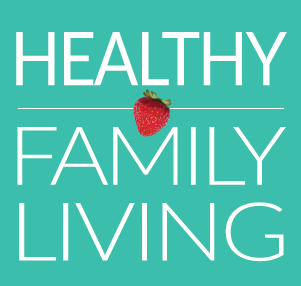Darker days, colder temps (and the never ending rain of the West Coast) can gang up on you and bring you down with a low winter mood or the winter blues. These feelings often start in the fall and continue into the winter months, draining your energy and making you feel moody.
There are many ways that you can set yourself up for you best possible winter mood this season. We have 16 suggestions for you to pick and choose from cover both your habits and nutrition.
Life-choices for the best winter mood:

Small changes in our daily routines can really add up to give us a sunny disposition. Here are some simple steps to start you on the right path:
Let the sunshine in!
Getting enough sunlight is a simple and natural way to boost your winter mood. Easier said than done in many climates. Here are some ways to increase your sunlight exposure.
- Leave your curtains and blinds open as long as possible.
- Take a walk while it’s still bright out, preferably in the morning.
- Bask in any sun you see! It only takes 10 minutes of sunlight exposure to raise Vitamin D levels.
According to researchers, sunshine may increase levels of serotonin—a natural antidepressant—in the brain.
Enjoy some sweet pet cuddles.
Petting your dog or cat for as little as 15 minutes has been shown to release mood-boosting hormones including oxytocin, according to a study at University of Missouri-Columbia.
Choose to move ... your body.
Exercise does our bodies good in so many ways including lessening depression symptoms. Research has found endorphins released during a workout; are a super healthy was to beat the winter blues. Find something you enjoy to do and get moving!
Get to bed & sleep well.
Sleep is crucial our health year round but winter night spent on screens can really affect the quality of sleep. Be sure to get a good night’s sleep of 7–9 hours with a screen limit at least 30 min - 1 hour before bed.
Take Care of YOU!
Leave enough time in your schedule for self-care (This one's for you Mom & Dad!). Find a hobby that you enjoy, take a warm bubble bath, curl up with a good novel, treat yourself to a manicure or pedicure, spend time with friends, book that massage. You can only pour from a full cup.
Start a gratitude journal.
This may not be for everyone but you might try to write down 1-2 things that you are grateful for every night before bed. Some days may be more profound than others but this practice is more about a change in mindset as opposed to what you are actually writing. Try this for 2 weeks and see if your outlook is different.
Eat your way to a better winter mood:

Here are some small changes you can make to how you eat in the winter months to give yourself the best mood boost:
Watch the comfort foods.
Fall rains & wintertime can set you on a path of comfort food & unhealthy eating, but good nutrition is important whatever time of year it is! Try and limit the comfort food binges and reach more often for fruits, vegetables, and lean protein.
Drink more water.
Dehydration happens in the winter too! It's important to keep hydration levels up to avoid fatigue, irritability, and headaches. In the colder months you can try herbal non-caffeinated teas as a great way to up to cozy up and keep your hydration on track.
Say yes to chocolate!
You had us at chocolate but be careful while dark chocolate has been shown to bolster serotonin production in the brain, that Mars bar is not what you are looking for. Choose natural dark chocolate that is at least 70% cocoa and enjoy a small amount everyday as opposed to the whole bar at once.
Get your fatty acids.
Salmon, flax seeds and walnuts are great choices for omega-3 fatty acids. Studies have shown that people with higher levels of were less likely to have a negative outlook.
Choose berries.
Dark berries such as blueberries, raspberries, and strawberries may help prevent the release of cortisol, a stress hormone produced by the adrenal gland. There is no easier way to build berries into your winter eating like a great morning smoothie!
Remember your old pal folic acid.
Leafy greens, oatmeal, sunflower seeds, oranges, fortified cereals , beans & lentils, are all part of a healthy diet and they are full of the B vitamin folic acid. Although researchers are not sure how, studies on folic acid suggests it can boost your mood as the body uses it to create the feel good neurotransmitter serotonin.
Boost your B-12.
Just like folic acid, the mechanism that Vitamin B-12 affects the brain is a bit of a mystery. That said, low levels of Vitamin B-12 are associated with depression. Lean proteins such lean beef, clams, oysters, crab, wild salmon, eggs, cottage cheese, yogurt, milk, and fortified cereals are great sources of vitamin B-12. Vegans may want to consider adding fortified plant-based milks or daily supplements to their diets.
Say no to excess sugar.
According to Natasa Janicic-Kahric, an associate professor of medicine at Georgetown University Hospital many people are now eating “eat about five times the amount of sugar they should consume”. Read the label and really try to limit ingredients that include the words syrup or words that end in “-ose” such as fructose, glucose, dextrose or sucralose. Sugar is a quick pick-me-up, but studies suggests that the all too common imbalance of too much sugar paired with low levels of omega-3 fatty acids is a very bad combination as it can functionally change your brain and slow it down. The crash after a sugar high is not worth the momentary high and can easily make you feel worse.
Eat your sunshine!
We discussed the “sunshine vitamin” earlier but when the weather is not cooperating, you can include sources of Vitamin D in you diet while still aiming for 10 min of outdoor time as a minimum whenever the clouds clear. Dietary sources include: milk, egg yolks, mushrooms, and fish. You can also get vitamin D in supplement form.
Put a cap on Caffeine.
Caffeine from that morning cuppa joe may add to feeling of depression and anxiety. Not quite the morning boost your were looking for. Try and limit caffeinated beverages to 1 serving a day and opt for herbal teas later in the day.
While it's normal to have some days when you feel down, if you find that you are feel down for days at a time and that you can't seem to get yourself get motivated for even the activities you normally enjoy, see your doctor to discuss Seasonal Affective Disorder (SAD).

Wondering what to do with the kids in Metro Vancouver this weekend, or what to make for dinner? You can find it at HealthyFamilyLiving.com! From the Sunshine Coast to the Fraser Valley, we’re the best online resource for busy parents looking for practical tips for healthy, active, sustainable living. For the latest on family events, outdoor adventures, birthday parties, camps & classes and kid-approved recipes, follow us on Facebook and sign-up for our parent-approved e-newsletter!




